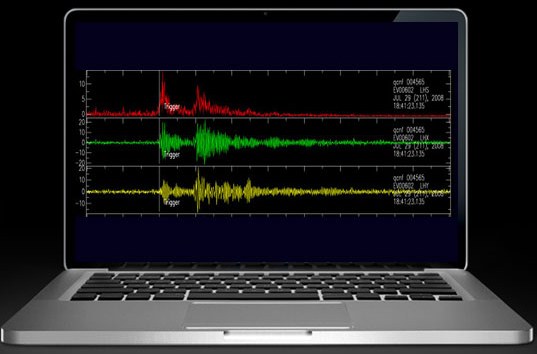Jobs Put Halt to Rumours of Mac App Store, Kind Of

The initial rumour was frankly absurd but if dissected far enough makes both financial sense for Apple, developers and will open up the Mac platform to the same ease of use that the iPhone and iPad enjoy.
The undated article appeared on Rixstep last week and suggested that Apple was signing up independent software vendors for the Mac OS X 10.7 developer program which will begin in early Autumn 2010. Rixstep then goes onto say that Apple will develop an App Store similar to that on the iPhone and “No software will be able to run on Mac OS X 10.7 without being approved and signed by Apple, Inc.”
The rumour suggests that Apple would have 100% control over every Mac with Mac OS X 10.7 installed on. Problem is, unlike the iPhone and iPad there is already a very established software market for the Mac, lots of free software and software that’s built to run exclusively on university and corporate Macs.
Thankfully one developer so gobsmacked by the suggestion emailed Steve Jobs in hope of some clarification on the rumours. The email published by MacStories is unfortunately not entirely concise.
Mac developer Fernando Valente writes:
Hey Steve, There’s a rumor saying there will be a Mac App Store and no software without authorization from Apple will run on Mac OS X. Is that true?
Steve Jobs’ reply:
Nope.
Problem is, that was two questions (in one) but only one answer, is that no there won’t be a Mac App Store or no there won’t be authorisation required or no to both?
If you look at it logically why would Apple not want to capitalise on the success of the App Store by bringing it to the Mac? Imagine all that extra income and let’s not forget that developers would get an easier ride too. Their app advertised in the prime place for Mac software and hosted for a small cut of the profits.
Also for all those new Mac owners the Mac App Store could be the first piece of software to run on first start up, easy one-click installation of familiar software from one easy to use repository.
It would be simply crazy for Apple to limit software distribution and installation to a Mac App store but it wouldn’t be so crazy for it to exist.
iTunes Festival to Rock London in July

The iTunes Festival which has been held for the last couple of years will this year show 62 bands over 31 days with headliners Scissor Sisters, Tony Bennett and Ozzy Osbourne kicking off the show.
Babydaddy of Scissor Sisters said, “We can’t wait to tickle your fancies with songs new and old as part of iTunes Festival. This will be our first performance ever at London’s legendary Roundhouse, WOAH”.
Tony Bennett says, “I’m thrilled that after playing two nights at London’s famous Royal Albert Hall, where I’ve appeared so many times over the years, I’ll be making my first appearance at the iTunes Festival at Camden’s Roundhouse. I love performing my favourite music, the Great American Songbook, to audiences of every age – so playing to the iTunes crowd in such an intimate setting will be great fun. The audiences of Britain have been so warm and welcoming and I always look forward to coming here to perform.”
“This has all the makings of a great gig,” says Ozzy Osbourne who will release Scream, his first album in almost three years via Epic, on June 14. “I’ve never performed before at the legendary Roundhouse, and it’ll be fantastic to do an intimate show there for the fans. We’re also recording it, so if you can’t make it to the gig, it’ll be available for download on iTunes.”
Each performance will be sold on the iTunes store worldwide and ITV will broadcast the best of the festival in the UK.
Apple hires new games editor for the iPhone App Store from IGN
Apple has hired Matt Casamassina of IGN to serve as the global editorial games manger for its iTunes App Store.
Casamassina got started in covering gaming when he launched N64.com, a site that was later bought by IGN. After 13 years of reviewing games and covering the industry, he’s known to many readers in the gaming industry as a prime source for information about Nintendo.
In his new position at Apple, Casamassina wrote in a blog posting, "I will be leading the charge for games on the App Store, so whether you browse through iTunes, iPhone, iPod Touch or iPad, the games content you see will be handpicked and organized by me and my team. I couldn’t be happier."
Apple has been promoting App Store games particularly on the iPod touch, which features game play in its ads. Games make up a large percentage of the apps available for the iPhone OS, and iTunes’ model of a wide variety of low priced game titles has attracted enthusiastic development and strong sales volumes to users.
The success of the iPod touch and iPhone as handheld gaming devices has shocked Sony and Nintendo, which are both struggling to reinvent their handheld gaming platforms to make them more attractive to a young demographic that is increasingly more ubiquitously networked and socially connected than ever.
The huge selection of games in iTunes poses a challenge for small developers looking to stand out, but many developers have discovered that the meritocracy that Apple has cultivated has allowed great work from even independent individuals working alone to become popular and profitable titles.
The new games editor position will be tasked with helping users discover new and interesting content. Casamassina will start work in the new role in early May.
Apple quietly makes MagSafe safer

Apple has quietly improved the MagSafe power adapter it ships with portable Macs, introducing the same kind of adapter design it has until now only made available with the MacBook Air and, more recently, with the unibody polycarbonte MacBooks.
Hidden in among its recent upgrades to its portable line-up, Apple quietly updated MagSafe tips for the 85 Watt adapters which come with the 15 and 17-inch MacBooks, and the 65 Watt versions for the 13-inch MacBook and MacBook Pro.
The new tip is aluminum and sits in parallel with the cable instead of at right-angles. More importantly, the aluminium extends to offer some protection to the point at which the cable joins the aluminium - that point has been prone to fraying in use. These things cost $79.
Product description:
The 85 Watt MagSafe Power Adapter features a magnetic DC connector that ensures your power cable will disconnect if it experiences undue strain and helps prevent fraying or weakening of the cables over time. In addition, the magnetic DC helps guide the plug into the system for a quick and secure connection.
When the connection is secure, an LED located at the head of the DC connector will light; an amber light lets you know that your portable is charging, while a green light tells you that you have a full charge. An AC cord is provided with the adapter for maximum cord length, while the AC wall adapter (also provided) gives users an even easier and more compact way to travel.
Earthquake-Detecting Program Turns Your Laptop into a Seismometer

If you’ve purchased a laptop over the past few years it’s very likely to contain a device called an accelerometer — a sensor that can save your hard drive by registering if you’ve dropped your precious Mac or PC. In a genius feat of repurposing, Elizabeth Cochran of the University of California, Riverside and and Jesse Lawrence of Stanford have created a free computer program that uses your accelerometer to turn your computer into a seismometer that can easily detect earthquakes. They’re working on building a network of earthquake-detecting computers around the world in order to crowdsource seismic data and get people to safety faster.

Your accelerometer won’t detect small tremors, but it can detect earthquakes larger than 4.0 on the Richter scale — those most likely to cause damage and require immediate attention. The program runs unnoticed whenever your computer is on, and when it detects a tremor it sends a message to the researcher’s lab. They’re able to monitor these pings, and when they receive a large number of messages in a localized area they know they’ve caught a quake! With this info they can send out early warnings to residents to give them a few seconds to get to a safe place.
The program — which is called The Quake-Catcher Network — even has an “earthquake monitor” section where you can use an interactive map to monitor earthquake activity on The Quake-Catcher Network across the world. Talk about a time drain — surfing the web for earthquakes sounds awesome! The network currently has 1,000 computers online worldwide but they need as many as they can get to take accurate measurements. We’re totally downloading this on the Inhabitat computers. With our powers combined perhaps we can help make getting to safety a little easier in the event of an earthquake.
Adobe slips mobile Flash Player 10.1 to second half of 2010
After mounting an intense attack on Apple for not supporting Flash on its iPhone OS mobile devices, Adobe has admitted that it will not be able to ship its promised Flash Player 10.1 for mobile platforms until the second half of the year.